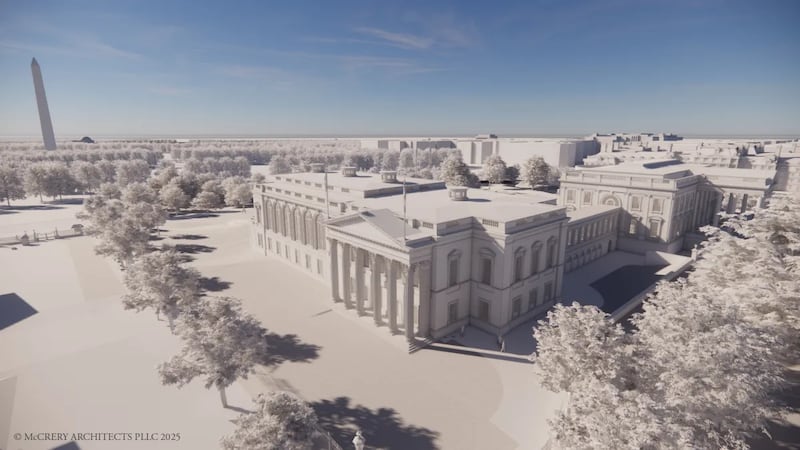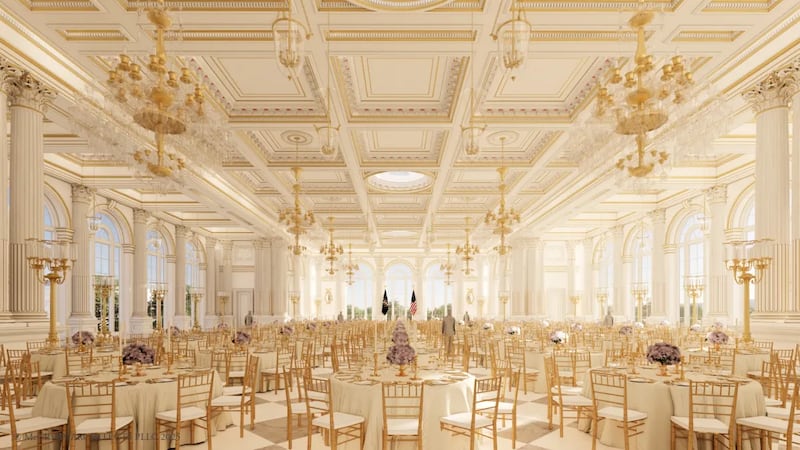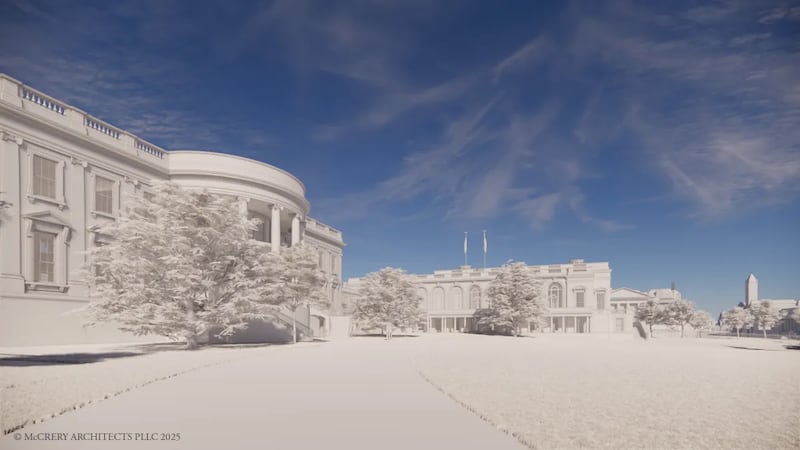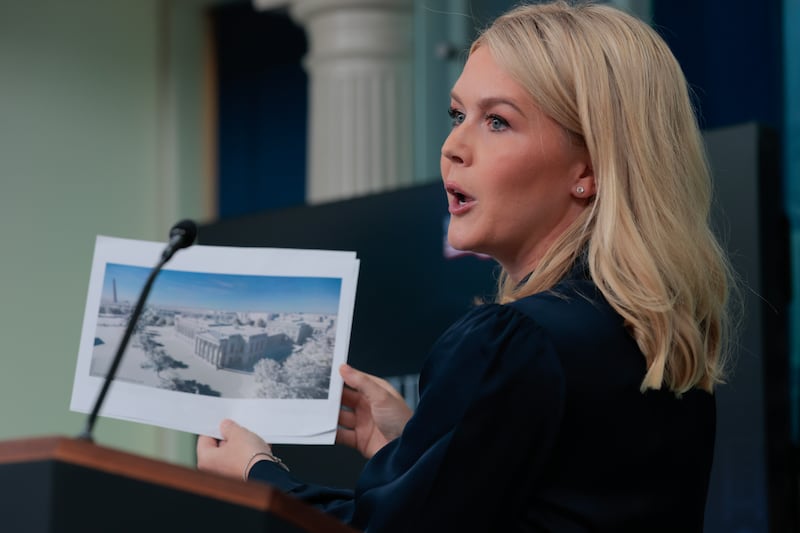After bulldozing the White House Rose Garden and gold leafing the Oval Office, President Donald Trump plans to give the East Wing of the White House a full Mar-a-Lago-style makeover.
Press Secretary Karoline Leavitt announced construction on a new White House ballroom will begin in September and will wrap up before the end of Trump’s term.
It will cost approximately $200 million to build. The president and private donors would foot the bill for the project, according to Leavitt.
Offices currently held in the East Wing, including the office of the first lady, will temporarily be relocated.
The major overhaul comes as First Lady Melania Trump has been notably absent from the White House for most the second Trump administration so far, instead opting to spend her time in New York or Florida and only showing up for a select few White House events.
Apart from the office of the first lady, the East Wing also houses the President’s theater and White House visitor’s entrance.

The White House said that the new ballroom would be substantially separated from the main building of the White House, but the “architectural heritage will be almost identical.”
The new ballroom will be approximately 90,000 total square feet, making it nearly double the square footage of the current White House, which is 55,000 square feet including the ground Floor, state floor, and residence floors.
The massive ballroom will have the capacity to host 650 people, making it a much greater space than the East Room, which holds 200.
The new ballroom will also do away with the need for the White House to erect a tent on the lawn to host some events as has been done by previous administrations.
Asked about the construction on Thursday afternoon, Trump, 79, touted that it would be a “great legacy project.”
“It’ll have views of the Washington Monument. It won’t interfere with the current building,” he said. “It’ll be near it, but not touching it and pays total respect to the existing building, which I’m the biggest fan of.”

Trump has already held several meetings with staff, the National Park Service and others to discuss the project.
The White House said that the president has also chosen McCrery Architects as the lead architect, construction will be led by Clark Construction and AECOM will head up the engineering team.
The White House did not immediately share the names of any donors who be contributing to pay for the project, but a White House official told Daily Beast it would continue to provide additional details when they are available.
Trump in February vowed to build a White House ballroom, but at the time he said it would cost $100 million, just half of the estimated price tag for the project.

“President Trump is a builder at heart and has an extraordinary eye for detail,” said White House chief of staff Susie Wiles in a statement.
“The president and the Trump White House are fully committed to working with the appropriate organizations to preserve the special history of the White House while building a beautiful ballroom that can be enjoyed by future administrations and generations of Americans to come," she added.
It is the latest in a series of White House construction projects Trump has spearheaded since returning to office.
The president pushed for the plan to pave over the White House Rose Garden lawn. He also touted the installation of massive new flagpoles on the North and South Lawns.

The Oval Office has also seen a major makeover.
While the space is regularly redecorated with the changeover in occupants, the famous office has steadily seen the addition of not just more artwork and furniture but has been drenched in gold leafing similar to the gilded look of the president’s private Florida club.
In May, the president even bragged about the glitzy interior while attending a high-stakes meeting with Canadian Prime Minister Mark Carney.
“You see the new and improved Oval Office,” Trump said. “As it becomes more and more beautiful with love, you know. We handle it with great love and 24-karat gold. That always helps, too.”
The East Wing was constructed in 1902 with a second story added in 1942.








